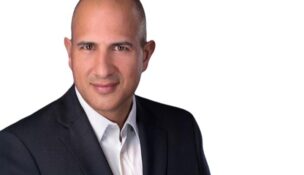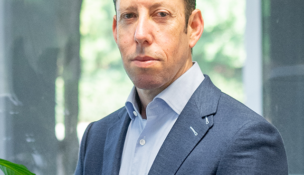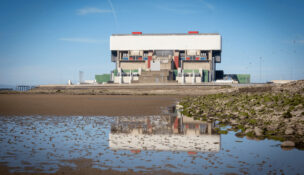Va. directs $34M to clean energy projects
Purchases include electric vehicles and replacing diesel cargo handling equipment at Port of Va.
Sydney Lake //July 13, 2020//
Va. directs $34M to clean energy projects
Purchases include electric vehicles and replacing diesel cargo handling equipment at Port of Va.
Sydney Lake //July 13, 2020//
Virginia will dedicate $34 million to electrify state government vehicle fleets and to replace all-diesel cargo handling equipment at the Port of Virginia with zero-emission all-electric equipment, Gov. Ralph Northam announced Friday.
“As we continue to fight this global pandemic, we are reminded daily that we must prioritize public health in every way possible,” Northam said in a statement. “Together, these projects show how we can make critical investments in the health and well-being of all Virginians while advancing our commitment to a clean energy future.”
The state will use $14 million to replace all-diesel cargo handling equipment at the Port with zero-emission all-electric equipment, and $20 million will be directed to the Clean Air Communities Program, which will electrify government transportation fleets.
The port project includes the deployment of two all-electric ship-to-shore cranes at Norfolk International Terminals. Part of the funding will also be used toward all-electric yard tractors and charging infrastructure at the Richmond Marine Terminal. The Port currently operates more than 160 diesel yard tractors.
“We are pleased to be part of the next steps in building Virginia’s clean energy economy,” John F. Reinhart, CEO and executive director of Virginia Port Authority, said in a statement. “These investments will help the Port of Virginia continue our efforts to reduce emissions, be good stewards of the environment, and provide world-class service to our customers.”
Nearly two-thirds of cargo at the Port is transported on trucks, and nearby communities are disproportionately impacted by diesel pollution, according to Northam’s statement. It’s expected that the Port project will eliminate more than 3,000 tons of diesel pollution, more than 71,000 tons of greenhouse gases and the use of more than 6 million gallons of diesel fuel.
The remaining $20 million will be dedicated to public electrification projects. The state will open an application process for which all state and local government entities are eligible, but priority will be given to projects located in low-income communities, communities of color and communities listed on the U.S. Environmental Protection Agency’s 2020 Diesel Emissions Reduction Act Priority List.
Funding comes from settlement payments from the Volkswagen Environmental Mitigation Trust, from which the state has received funding from in the past. Volkswagen, which has its North American headquarters in Herndon, agreed in 2016 to a $14.7 billion settlement over claims that the automaker had installed software in diesel engine vehicles to disable emission controls. Claimants say this ultimately reflected inaccurate fuel mileage, driving performance and released thousands of tons of nitrogen oxides.
Of the settlement money, $10 billion was used to buy back consumer vehicles, and the remaining funding was split among U.S. states and was also used toward a media campaign aimed at increasing public awareness about zero-emission vehicles.
“These are exactly the kind of transformational, innovative investments that we hoped the commonwealth could make with the funds we secured from our enforcement action against VW,” Attorney General Mark Herring, who helped lead the multistate Volkswagen investigation, said in a statement. “These projects at the Port of Virginia will further cement its position as the premier facility on the East Coast, and the transformation of government fleets will set an example for both the public and private sectors as we seek to reduce emissions in the transportation sector.”
This is Virginia’s fourth funding allocation from the Volkswagen Environmental Mitigation Trust. The Department of Environmental Quality (DEQ) distributes Virginia’s share of the settlement.
“The projects funded through this settlement will showcase effective partnerships and innovative ideas,” DEQ Director David Paylor said in a statement. “We want to enable communities, particularly underserved communities, to implement projects that best respond to their needs.”
Subscribe to Virginia Business.


















